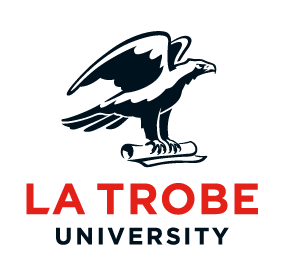Here’s What Employers Wish They Could Actually Tell You In Job Interviews
There’s way more to scoring your next gig than good grades and work experience.


La Trobe University is in the top 1.5 percent of universities worldwide.
Do you ever sit back and think there’s some kind of secret recruiter’s checklist that gets whipped out any time you head to a job interview? Well, my little conspiracy theorist, you’re half right – because there’s actually way more to scoring your next gig than just the usual good grades and work experience.
Turns out, your future employers are keen to hire someone who represents the whole package with demonstrated skills in resilience, leadership and relationship management. Here’s your cheat sheet to nailing your next chat with a recruiter or future boss.
#1 Get In Touch With Your Softer Side
Remember all those group assignments? They were part of the curriculum for a reason – to teach you how to engage and interact with other personalities. Erin Evans, director of the national technology recruitment and project consulting firm, FIRESOFT Consulting, believes the old days of judging candidates by their academic credentials are done and dusted.
“As technology shifts to a central and heavily integrated function within corporations, there is huge emphasis on soft skills and personality fit,” she explains. “The key elements across the board are strong interpersonal skills, emotional intelligence, the ability to communicate effectively and demonstrated success working as a contributing member of a team.”
#2 It’s Not Just About The Work You’ve Already Done
While professional experience helps demonstrate previous success in a particular field or skill, it is becoming less important. Evans explains that as we move more and more into a skill-short market, employers are shifting their hiring practices.
“They will hire on core values, personality fit and foundational knowledge,” she says. “They’ll do this knowing they can mentor and develop that individual to close any hard-skill gaps.”
#3 Show, Don’t Tell
Sure, you’ve got good leadership skills and you’re as resilient as Trump on a bad day, but it’s important to demonstrate this in a way that proves you’re not all talk. As Evans says, “It’s one thing to profess having strong leadership skills and tenacity, however, without proof or specific examples of how you exemplified these traits, the statement is hollow.”
#4 Shine On, You Crazy Diamond
Anyone can work hard, but someone who comes across as switched on, driven and eager to learn? Now we’re talking! Sinead Connolly, Director and co-founder of Lotus People – an independent recruitment agency specialising in business support and industry specific recruitment services, says having the ability to digest new information and the desire to learn is paramount during the interview process.
“It’s far more important to a business that someone can be reliable, a team player and pick things up, than have a set amount of experience, which can be arbitrary.” In business support roles, this is especially true. “Softer skills and culture fit is far more important than experience in this instance.”
#5 Avoid The Easy-To-Make Mistakes
While you can’t control everything that happens in an interview, you can be as prepared as possible. First, thoroughly research the company you’re interviewing for. “They always ask, ‘So, what do you know about us?’,” says Evans. “Get specific with your answer – this shows you really took the time to do your homework.”
While you’re at it, don’t forget to think about why you want this specific job. “It’s one thing to have a very generic answer to this, but it’s entirely another when the reason has been thought through and is very clearly articulated in the delivery.”
The biggest watch-outs, according to Evans? Steer clear of talking about money, location, and opportunity to climb the ladder. “Think more intrinsic motivations, interesting work, specific project passions and company culture or values.”
#6 Get Your Rating Up
No matter what anyone says, references are still a major part of the interview experience. Connolly believes they provide great insight into your personality from a number of different people. “They’re essential and can give a really good picture of how someone operated as part of a team and under instruction,” she explains. “But it’s always good to get a few different perspectives. Leadership skills and resilience are important but harder to determine from the outset, so references help with this.”
#7 Turn That Frown Upside Down
Instead of getting caught out during a difficult question, turn the situation around. Connolly suggests having an ace up your sleeve. “Try to think of something else – perhaps a situation where you may have overcome an obstacle. Try to give some answer rather than no answer, but don’t go off on a tangent.”
#8 Say No To Joe
If you’ve gone to the trouble of arriving early to your interview, don’t mess it all up by having a strong coffee right before your interview. “Save the coffee for after the interview!” says Evans. “Coffee breath and jittery caffeine buzz? No-one needs that.”
—
(Lead image: Columbia Pictures)
—
La Trobe University. All kinds of clever for you.